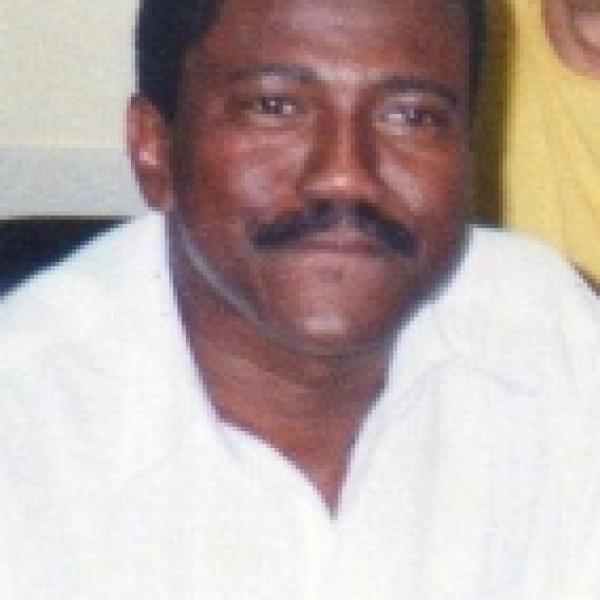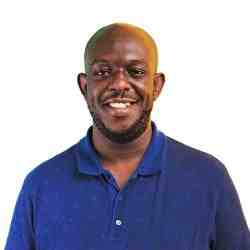Introduction
By combining elements of history, genealogy, and geography, Carlos Sampaio is creating an initiative to guarantee land rights and citizenship for low-income families in Brazil.
The New Idea
In a country with a persistent land distribution problem that goes back to its colonial days, Carlos is regulating land rights based on succession law for low-income families. Beginning with a process of legalizing their citizenship—gaining access to birth certificates and identification cards—Carlos’ methodology places significant value on discovering the history of the land, the families’ genealogy, and the geography, thus personalizing the process for each family. Through granting land rights, Carlos is providing much more than a deed to property. He is helping families gain access to public services such as water and sanitation, electricity, and postal services.
Kept at the margins of society, families without land rights often live in fear of eviction. Carlos’ initiative, Família Brasil, is enabling the process to gain land rights. Rather than solely relying on legal documents, evidence such as pictures, letters, and other elements connected to the history are used to prove ownership of the land. By doing so, he is not only recovering people’s legal identity and guaranteeing property rights, but also recovering their personal history and creating a sense of citizenship, belonging, and community stewardship.
Further, the framework that Carlos uses involves many different stakeholders. As he works with low-income families in rural and urban areas, he connects with lawyers, journalists, social workers, and government institutions. By bringing them into the process he is creating a more comprehensive and concrete system of gaining access to land rights and making his methodology accessible to all. Família Brasil has helped approximately 3,500 families in the state of Sao Paulo and is looking to spread throughout Brazil as well as other countries where securing land rights is a prevalent issue.
The Problem
In a country where an estimated 2 percent of the population owns 50 percent of the land, thousands of low-income families throughout Brazil still do not have rights to their land. These families come from various different ethnicities and live both in rural and urban areas.
Not having legal rights to property produces an array of negative consequences for families in Brazil. First, because proving home ownership provides security to banks and employers, families who cannot prove their land ownership face challenges accessing credit and getting a job. An additional consequence is that the lack of documents proving land ownership decreases the property value—in some cases, it is impossible to find a buyer for the property when the property bonds don’t exist. Further, land inheritance is nearly impossible without the correct documents and it becomes even more difficult when a senior member of the family dies. Finally, families that cannot prove the ownership of their land live in fear that they are going to be evicted from their houses. Not wanting to invest in a home that may be temporary, families often don’t maintain a high standard of living, thus decreasing the market value of the home and the community.
Although there are laws that require a family to be relocated when evicted from their home, these laws are not currently upheld. As a consequence of moving to a different place, people end up leaving their jobs, quitting school and even being torn apart from their families and communities in addition to the land losing the historical and cultural aspects of its dwellers.
Unfortunately, as a means of regulating land property and preventing all of these consequences, there is no clear process or public organization to which families can turn to for support. The responsibility and process of land regulation is divided among several different government bodies. For example, the National Institute of Colonization and Agrarian Reform (INCRA), the Ministry of Agrarian Development (MDA) and Land Institutes for some Brazilian states such as Sao Paulo are all trying to tackle the issue of land ownership. The result is that citizens don’t know who to talk to and even when or how they can access the services of these institutions.
Even more complex is the fact that about 5 million people in Brazil do not have identification documents, a requisite to access land rights and other basic civil rights. Children without birth certificates cannot be vaccinated or attend school. Adults without identification cannot access labor or welfare benefits, vote, or have a bank account. Elderly citizens without documents can’t retire or have their death registered. The land problem in Brazil is ultimately a challenge of citizenry.
The Strategy
Although Carlos initially started Família Brasil to guarantee land rights to descendants of slaves, he currently works with any family that earns up to three minimum salaries, an equivalent of US$900 per month. Carlos works in seven different cities, in both rural and urban areas.
The process created by Carlos is simple yet concrete. First, each family goes through a pre-interview in which they introduce themselves and their situation to a member of the Família Brasil team. The objective of this first step is to check whether the family has a land rights issue based on succession law. The pre-interview also serves as an education tool for the family. After listening to the family’s situation, the interviewer informs the family about succession laws, basic land rights, challenges that can occur in getting access to land rights, etc. Often families come to Família Brasil with issues that are not always directly related to land regulation. Carlos’ team has an extensive network and knowledge of other citizen organizations, and always suggests organizations that the family can turn to. All families that interact with Família Brasil are registered in a database that allows Carlos to track results, measure key indicators, and analyze the profile of his audience. He uses the information to better understand the demographics of the families, key trends, and the reasons they are seeking land rights guidance.
After the initial screening, a more in-depth interview takes place. At this point, the family presents all thedocuments they have to show any form of evidence of land ownership. A priority at this step is for Carlos’ team to identify whether or not the family members have personal documents, such as identification cards and birth certificates. If the family members do not have these documents, it is crucial to help them get them. Carlos is aware of the importance of these documents as they are the foundation for getting access to land rights in addition to other basic civil rights. During the in-depth interview, each case is categorized based on the amount of time that will be required to solve it. The family is informed if it is a short (6 to 12 months), medium (1 to 2 years) or long-term (2 to 5 years) case.
Because each family situation is unique, Carlos creates a customized plan to solve the case. He then brings in his extensive network of professionals to help the family. Currently working full-time with Carlos are seventeen employees and ten volunteers. Additionally, Carlos relies on thirty-four lawyers to provide pro bono support to the families he works with. The 17-team members are journalists, teachers, social workers, and university students that use their background and knowledge to help families by accessing the right documents, finding the best evidence, and talking to the appropriate authorities. For example, journalists are often able to use their expertise to research old newspaper articles and clippings in order to find any piece of evidence that can point to a family’s land ownership. Carlos’ methodology is such that it does not have to be performed by an expert in land rights, making it easy to reproduce. He believes that with the right documents and tools, anyone can successfully attain legal ownership of land.
Families work side by side with Carlos’ team and often photos, letters, and other personal items can be just as important as legal documents to prove their land ownership. Many of Carlos’ cases have been solved this way. Further, by requiring the families to present proof, it is also a tool for them to recover their genealogy and history of the land. Doing so gives them a collective sense of belonging and accomplishment, since they often help one another in piecing together their history. This piece of the process has become a critical part of the strategy. Once the family is able to gather a set of evidence, Carlos helps them present the documents to the necessary legal agencies that in turn grant a land deed.
Carlos currently relies on a grassroots marketing strategy based on word-of-mouth distribution. Families that were able to get ownership of their land through Família Brasil naturally share their success stories with friends and neighbors. Sometimes, while looking for pictures and other evidence, they have to rely on other community members to provide these items. The history of each member of the territory is connected with the geography of the region. Thus, the initiative easily becomes a community affair and the idea is spread. The participation in any of these phases is free for the families. The financial sustainability of the organization is currently based on individual donations and grants. Carlos and his team use a telemarketing strategy to stimulate donations and market the initiative.
Since 2003, over 3,500 families have sought Família Brasil’s support. Of these, 531 successfully gained rights to their land and the remaining families were either referred to other organizations since their needs were not directly related to land rights or are still in the process of getting their land deed. In future, Carlos plans to replicate his strategy to other states and favelas, since he believes that working with these communities is a way of giving back land rights lost by people who had to leave their ancestral lands in the countryside.
The Person
As a young man, many people in Sorocaba admired Carlos and frequently sought his help. An activist in the Black Movement during the 1970s, he was always well-informed and articulate. Shortly after the death of his father, an elderly aunt asked Carlos to help her get the deed to a property that belonged to their family since the 18th century. Fearing that when she died the other members of the family would not be able to prove ownership, she felt Carlos was the right person to pursue this venture. With only one document in his hands, Carlos started to look for a solution. He visited several different government bodies, talked to many individuals and researched information on the Internet. During the process, he found that the area in which the property was located belonged to descendants of slaves. Through this process of learning about the history of the land, his genealogy, and the geography, he was able to get the necessary documents to gain rights to the land. Knowing that twenty-three neighboring families faced the same situation, Carlos immediately helped the families get the rights to their land.
As he finalized his own process, Carlos realized that there were families all over the country facing the same problem. Knowing that all families in this situation would have to face the same hardships that he did, he quit his job as a sales representative and dedicated himself full-time to spreading the methodology that he developed.
In 2003 Carlos started Família Brasil using the skills he learned as a pastor and sales representative to spread his idea. Recognizing this, government bodies have called on his expertise and offered him jobs. Carlos will keep finding new answers for a problem that has persisted for centuries—guaranteeing that every person in Brazil has the ability and legitimacy to engage in society with full citizenship.




